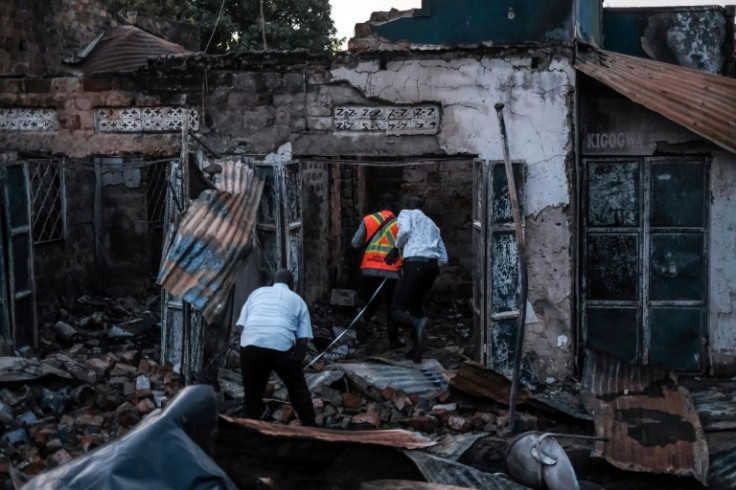
A fuel truck ran out of control and exploded into flames near the Ugandan capital on Tuesday, killing at least 10 people, a local official told AFP.
The impoverished East African country has witnessed several similar disasters in recent years as people rushed to steal fuel from tankers involved in road accidents.
Tuesday's blast occurred on a highway in the town of Kigogwa, about 25 kilometres (15 miles) north of Kampala.
"The fuel tanker lost control and overturned," said Charles Lwanga, resident district commissioner for the area.
"This is a busy area and people nearby came to siphon fuel from the fuel tanker but it exploded killing at least 10 people and several people are injured," he added.
Images from the scene showed yellow police tape around the charred wreck of the tanker while forensic specialists and emergency responders inspected nearby homes destroyed in the blast.
The incident took place just days after a fuel tanker exploded in northern Nigeria on October 15, killing more than 170 people.
"Investigations are under way. Rescue and emergencies are on the scene and the fire prevention service from the police have controlled the fire," Lwanga told AFP.
Ambulances rushed to the scene to take the injured to hospital, Lwanga told reporters, adding that firefighters had prevented the flames from reaching a nearby petrol station.
Kampala Metropolitan Police spokesman Patrick Onyango said in a statement on X that the fuel tanker overturned and caught fire at 3 pm (1200 GMT).
"A multi-agency response team swiftly responded," he added.
The town lies on the road between Kampala and the town of Bombo, where the Uganda Land Forces have their headquarters.
In August 2019, 19 people died when a fuel truck barrelled into other vehicles in the busy town of Kyambura in western Uganda and exploded.
And in 2013, 33 people died in a blast after a fuel truck overturned in Kampala.
Uganda imports an average of 2.5 billion litres of petroleum a year, according to local media reports.
It is currently developing oil fields in the Lake Albert area of northwestern Uganda in a controversial mega-project with TotalEnergies of France and China's state-run CNOOC.
The $10 billion project -- which also involves building a 1,443-kilometre (900-mile) heated pipeline to ship the crude to Tanzania -- has come under fire from rights groups and environmental campaigners.
Uganda's veteran President Yoweri Museveni says the oil is vital to help economic development in the country, where the poverty rate stood at about 20 percent, according to government figures for 2020/21.








